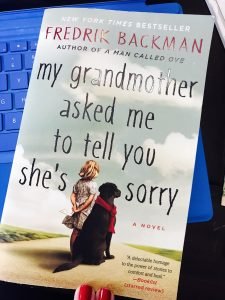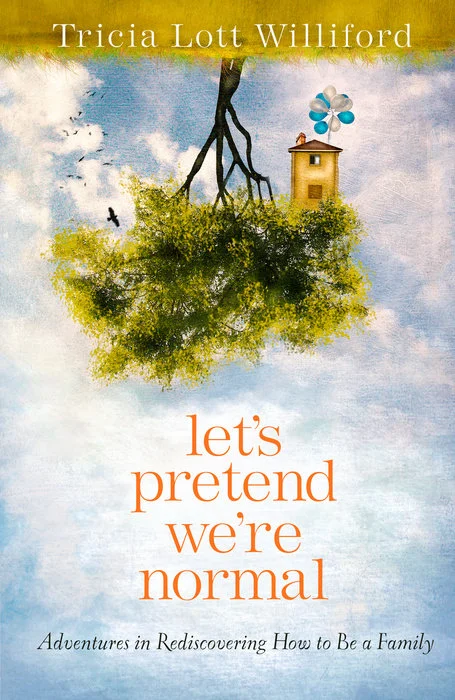The Girl Who Said “No.”

I am reading My Grandmother Told Me To Tell You She’s Sorry, by Fredrik Backman, and it is a most delicious novel about a grandma who creates a fairytale kingdom, the Land-of-Almost-Awake, for to her granddaughter to visit in her dreams.
It’s the kind of book where you think you’re reading one kind of story, but it turns into a whole different one, this blend of fiction and fairytale with characters who steal your heart, and you want to read each page again to make sure you didn’t miss a single morsel of this goodness.
Like this: the bedtime story Granny tells of The Girl Who Said “No.”
***
In the beginning, the Queen of Miaudacas had been a courageous and fair-minded princess very much liked by all, but unfortunately she grew up and became a frightened adult, as adults tend to be.
She started loving efficiency and avoiding conflict. As adults do.
And then the queen simply forbade all conflict in Miaudacas. Everyone had to get along all the time. And because nearly all conflicts start with someone saying “no,” the queen also made this word illegal.
Anyone breaking this law was immediately cast into a huge Naysayers’ Prison, and hundreds of soldiers in black armor who were known as Yea-Sayers patrolled the streets to make sure there were no disagreements anywhere.
Dissatisfied with this, the queen had soon outlawed not only the word “no” but also other words including “not” and “maybe” and “well.” Any of these were enough to get you sent straight to prison, where you’d never again see the light of day.
After a couple of years, words like “possibly” and “if” and “wait and see” had also been made illegal. In the end no one dared say anything at all.
And then the queen felt that she might as well make all talking illegal, because almost every conflict tended to start with someone saying something. And after that, there was silence in the kingdom for several years.
Until one day, a little girl came riding in, singing as she went.
And everyone stared at her, because singing was an extremely serious crime in Miaudacas, because there was a risk of one person liking the song and another disliking it. The Yea-Sayers sprang into action to stop the girl, but they couldn’t catch her because she was very good at running. So the Yea-Sayers rang all the bells and called for reinforcements. 
Upon which the queen’s very own elite force, known as the Paragraph Riders – because they rode a very special kind of animal that was a cross between a giraffe and a rule book – came out to stop the girl. But not even the Paragraph Riders could lay their hands on her, and in the end the queen in person came rushing out of her castle and roared to the girl to stop singing.
But then the girl turned to the queen, stared her right in the eye, and said, “No.”
And as soon as she had said it, a piece of masonry fell off the wall around the prison. And when the girl said “no” one more time, another piece of masonry fell. And before long, not only the girl but all the other people in the kingdom, even the Yea-Sayers and the Paragraph Riders, were shouting, “No! No! No!” and then the prison crumbled.
And that was how the people of Miaudacas learned:
A queen only stays in power for as long as her subjects are afraid of conflict.







